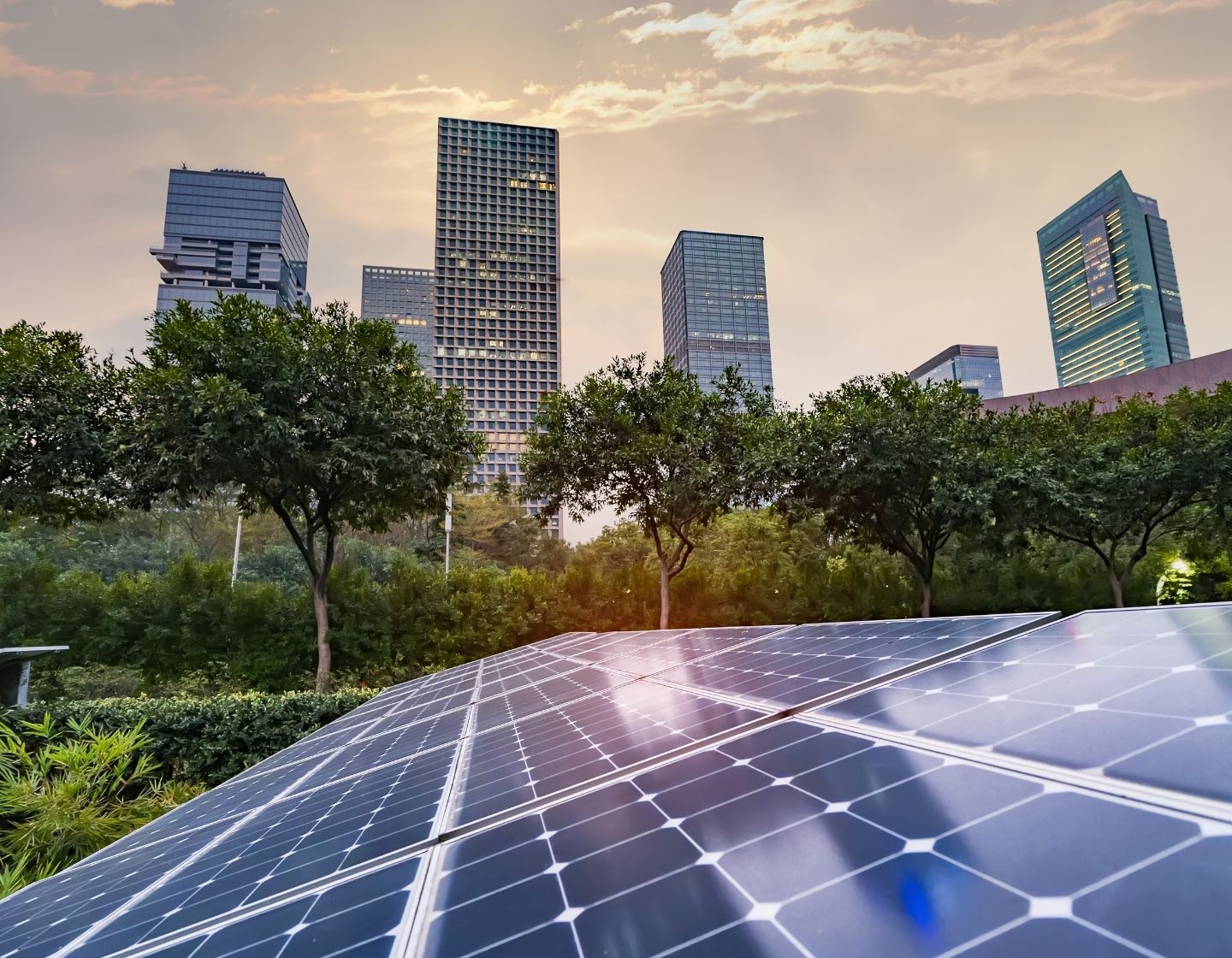How the retail sector can battle back against the energy-cost crisis
The retail sector has been hard hit by the rapid rise in energy costs over the past year with potentially catastrophic effects for businesses across the country.
Shops and other outlets have seen an excruciating surge in gas and electricity prices and are working on effective planning to ensure long-term survival.
Increases that have doubled energy costs will affect businesses of every size and there’s no price cap on commercial supply contracts. This has led to huge variations in the tariffs quoted and since August 2021, suppliers have increased out-of-contract rates by an average of 100% to reflect extraordinarily high levels of wholesale energy prices.
From low market position of just over £24 per MWh in April and May last year prices have been climbing. In September 2020, wholesale electricity costs were £45.30 per MWh and prices are now well past pre-pandemic levels. There’s little sign of the power pain easing. In early July, Britain’s day-ahead gas price reached a three-month high of 272.5p a therm, up 17.9%. Gas for delivery prices for August rose 7% at 302p a therm. Electricity is now more than £119 per MWh.
Ukraine and other price pushers
The war in Ukraine is having a big impact on energy bills because Europe is reliant on Russian gas. In 2021, Europe sourced more than 40% of gas imports from Russia and conflict with Ukraine could seriously disrupt this supply and push up prices. Wholesale gas prices have risen by as much as 33% and some suppliers have temporarily pulled out of the market.
It’s true that the UK not so heavily reliant on Russian gas but as it imports nearly 50% of its energy from Europe, supply price hikes there will push up prices here.
The other main drivers for the price spikes are gas shortages across Europe, high Asian demand for liquefied natural gas (LNG) curtailing shipments to Europe, delays and complications to the Nord Stream 2 pipeline (direct from Russia to Europe) and post-lockdown surge in demand.
UK-specific challenges include low winds reducing renewable energy generation, nuclear power station outages and a fire at a National Grid site in Kent that knocked out a power cable running between England and France and used to import electricity. This isn’t expected to be fully operational until 2023.
The UK also has some of the lowest gas reserves in Europe — capacity is equivalent to around 2% of annual demand, compared to 25% for other European countries, so is more vulnerable to short-term market moves.

End of the cheap-energy era
Mid-term pressures on energy prices include the Fifth Carbon Budget (2028-2032) which specifies a very demanding 57% reduction in emissions from 1990 levels. As the energy sector is responsible for around 21% of the UK’s total emissions, the response from the sector in the coming years will have a great impact on commercial energy bills.
SaveMoneyCutCarbon was founded on the basis that the era of “cheap-as-chips” energy fuelled by cheap oil, coal and nuclear was coming to an end. Its Carbon Mentors work with companies to develop sustainable strategies that drastically reduce energy costs and cut carbon emissions at the same time, while strengthening Environmental, Social and Governance (ESG) credentials.
It’s well understood that any sustainability project has to move beyond simply being green – just good for the environment. While that’s now essential for any business, there has to be a sound business case, with any investment in energy and water-saving projects delivering a rapid return on investment.
Relief for retail
SaveMoneyCutCarbon’s work with Morley Stores is a good example. The group of department stores in Greater London needed energy and water savings solutions to reduce its soaring energy bills, cut costs of water consumption and lower overall carbon emissions.
A detailed survey covered the stores’ lighting systems, water services, and heating systems, as well as the potential for rooftop PV solar arrays and EV charging points.
SaveMoneyCutCarbon’s unique Savings Opportunity Report Tool provided Morley Stores with a detailed assessment of energy-saving carbon-reduction opportunities. The team also delivered a full Retrofit Solutions Audit.
On the basis of the reports, Morley Stores commissioned the installation of LED lighting across the properties surveyed, together with a range of water-saving solutions, all giving rapid payback on initial investment.
Across the group’s stores, SaveMoneyCutCarbon installed more than 9,500 LED light fittings, including Ledvance panels, with 36W energy consumption, very good glare reduction (UGR < 19), comfortable light (4000K) and high colour consistency. The team also retrofitted hundreds of LED downlights, spotlights, 2D, bulkhead and emergency lighting.
SaveMoneyCutCarbon also installed a range of water-saving solutions, including tap aerators, restrictors, low-flush cisterns with sensor control, and urinal controls. One example, at Ely’s in Wimbledon 15 toilet cisterns in public areas were upgraded with a retrofit solution with conversion of flush buttons to sensors. This reduced flush volume down to 2.8 litres, savings thousands of litres of water annually, with a return on investment of 1.43 years.

Savings snapshot
The group will save thousands of pounds on energy and water costs every year with rapid return on initial investment and ongoing savings over many years, with the long working life of the LED light fittings and quality water-efficiency solutions. Payback is swift with best case of around 1 year.
LED
- Average annual energy savings: 62.95%
- ROI: quickest payback 1 year
- Average CO2 reductions p.a.: 62.95%
Water
Average ROI:
- Tap aerators/restrictors: 7 months
- Urinals: 8 months
- Toilets: 3.5 years
Eco hand dryers
- Average annual energy savings: 81.6%
- Average ROI: 1.62 years
- Average CO2 reductions p.a.: 81.6%
Top 3 savers for retail:
Lighting – The retail sector can continue to develop low-cost lighting strategies that focus on excellent results from LED and smart controls that optimise use of lighting and electricity consumed.
EV – Lifetime ownership costs of electric vehicles (EV) are now lower than for internal combustion engine models and the wholesale adoption of EVs seems unstoppable, given that the government is committed to banning sales of new petrol and diesel vehicles from 2030.
The retail sector will reduce costs through the migration of company vehicles to electric allied to the development of new revenue streams from electric vehicle (EV) charging as a service. Destination charging growth will be fuelled by more rapid adoption of EV nationally.
Solar – Renewable sources are becoming an essential part of supply and retailers can strengthen the move to EV with the installation of solar panels to fuel vehicles. Self-generated energy is increasingly important as a means of reducing costs and as the price of electricity will continue to rise, cheap sustainable power sources will be a crucial part of the net zero mix.

5 ESG tips for retail:
Retailers have to develop sustainable ESG strategies that have positive effects on the environment and society, and optimise shareholder value while focusing on threats and opportunities.
Net zero strategies adopted by national government and international organisations mean that companies are keenly aware of the need to shrink climate footprint and cut carbon emissions by addressing all parts of the value chain.
- The sector should view ESG as a transformation project that produces radical, responsible differences. This means building a “bottom-to-top” inclusive strategy.
- Build an energy-efficient infrastructure, with ethical supply chains, to save money and cut carbon.
- Improve waste management, with better planning for disposable packaging and single-use plastics.
- Gather data: identify the most effective ways to measure. Define and embed key performance indicators (KPIs) and sector benchmarks. Ensure customer privacy and data security.
- Develop and promote ethical business and labour practices, embed diversity, tackle economic inequality and root out discrimination.
SaveMoneyCutCarbon is proud to be a Member Rewards partner with ICAEW, supporting members to reduce business energy costs and delivering ESG agendas. Any company of any size can book a free call with an Energy & Carbon Mentor. During the 30-minute Zoom consultation they will assess main business drivers, answer questions and share recommendations to help the business save money and cut carbon. Book a call here.


